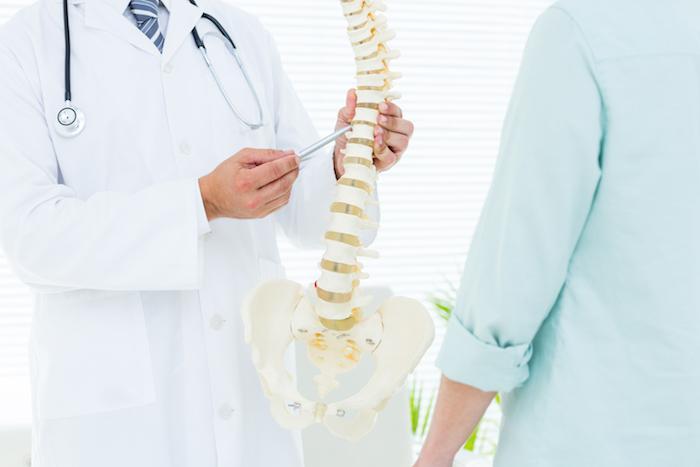
Spinal stenosis is a common condition that affects the spinal cord and nerves, typically occurring in the lower back and neck. This condition causes narrowing of the spinal canal, which can put pressure on the spinal cord and nerves, leading to pain, numbness, and weakness in the back, legs, and arms. While spinal stenosis is often associated with aging, it can also result from degenerative changes, herniated discs, tumors, or spinal injuries.
If you are experiencing symptoms of spinal stenosis, seeking treatment from a qualified medical professional is crucial. In New Jersey, several state-of-the-art spinal stenosis treatment options are available to help alleviate pain and improve mobility. In this article, we will explore some of the most effective treatments for spinal stenosis Treatment NJ.
Non-Surgical Treatments for Spinal Stenosis
In many cases, spinal stenosis can be managed with non-surgical treatments. These may include:
- Physical therapy: A physical therapist can help you develop a customized exercise program to improve your strength, flexibility, and mobility.
- Medications: Over-the-counter pain relievers, such as acetaminophen and nonsteroidal anti-inflammatory drugs (NSAIDs), can help alleviate pain and reduce inflammation. Prescription medications, such as muscle relaxants, narcotics, and antidepressants, may also be recommended in some cases.
- Injections: Epidural steroid injections can help reduce inflammation and alleviate pain. These injections are typically administered directly into the affected area of the spine.
- Bracing: A brace or corset can help support the spine and alleviate pain.
Surgical Treatments for Spinal Stenosis
If non-surgical treatments are not effective in managing your spinal stenosis symptoms, your doctor may recommend surgery. Some of the most common surgical treatments for spinal stenosis include:
- Decompression surgery: This procedure involves removing bone, discs, or ligaments that are causing pressure on the spinal cord or nerves. Decompression surgery can be performed through a variety of approaches, including minimally invasive techniques.
- Fusion surgery: This procedure involves fusing two or more vertebrae together to stabilize the spine. Fusion surgery is typically recommended for patients with spinal instability or deformity.
- Artificial disc replacement: This procedure involves replacing a damaged or degenerated disc with an artificial disc. Artificial disc replacement can help maintain mobility and reduce the risk of further degeneration.
Advanced Spinal Stenosis Treatment Options in New Jersey
New Jersey is home to several world-class medical facilities that specialize in spinal stenosis treatment. These facilities offer the latest advancements in spinal surgery, including minimally invasive techniques, robot-assisted surgery, and artificial disc replacement.
Some of the most advanced spinal stenosis treatment options available in New Jersey include:
- Minimally Invasive Spine Surgery (MISS): MISS is a surgical technique that involves making small incisions and using specialized instruments to perform surgery. MISS can help reduce blood loss, postoperative pain, and recovery time.
- Robot-Assisted Spine Surgery: Robot-assisted spine surgery involves using a robotic system to guide the surgeon during the procedure. This technology can help improve precision and accuracy, reducing the risk of complications.
- Artificial Disc Replacement: Artificial disc replacement is a surgical procedure that involves replacing a damaged or degenerated disc with an artificial disc. This procedure can help maintain mobility and reduce the risk of further degeneration.
Choosing the Right Spinal Stenosis Treatment in New Jersey
When choosing a spinal stenosis treatment in New Jersey, it is essential to consider several factors, including your symptoms, medical history, and overall health. You should also consider the experience and expertise of the medical professional performing the procedure.
Here are some tips to help you choose the right spinal stenosis treatment in New Jersey:
- Research medical facilities and doctors in your area. Look for facilities that specialize in spinal stenosis treatment and have a track record of success.
- Schedule a consultation with a qualified medical professional. During the consultation, discuss your symptoms, medical history, and treatment options.
- Ask questions about the procedure, including the risks, benefits, and recovery time.
- Consider getting a second opinion from another medical professional.
- Discuss non-surgical treatment options with your doctor, including physical therapy, medications, and injections.
Conclusion
Spinal stenosis can be a debilitating condition, but several effective treatment options are available in New Jersey. From non-surgical treatments like physical therapy and medications to advanced surgical procedures like minimally invasive spine surgery and artificial disc replacement, there is a treatment option that can help alleviate your pain and improve your mobility. By working with a qualified medical professional and considering your unique needs and circumstances, you can find the right spinal stenosis treatment in New Jersey.